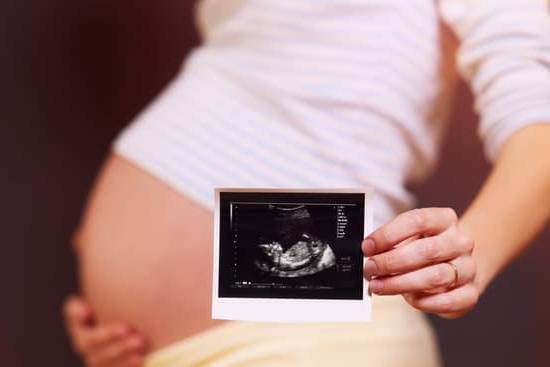Pregnancy detection through ultrasound is a common and crucial part of prenatal care for expecting mothers. Ultrasounds are non-invasive imaging procedures that utilize sound waves to create images of the inside of the body, including the uterus where a fetus develops during pregnancy. One of the most frequently asked questions by women is: how soon can pregnancy be detected by ultrasound?
In order to answer this question, it is important to first understand the basics of ultrasounds. These imaging procedures are safe and painless, providing valuable insights into the health and development of both the mother and the unborn child. There are different types of ultrasounds available for pregnancy detection, each with specific purposes and levels of accuracy in determining fetal age and growth.
The timing of pregnancy detection through ultrasound can vary based on several factors such as the technology used, individual differences in fetal development, and the expertise of the healthcare provider performing the procedure. Early signs of pregnancy may prompt a woman to consider getting an ultrasound, especially if there are concerns about her health or the well-being of the fetus.
By understanding how ultrasounds work to detect pregnancy and monitoring fetal development, expectant mothers can take proactive steps towards ensuring a healthy pregnancy journey.
Types of Ultrasounds Available for Pregnancy Detection
Ultrasounds are a common and vital tool used in detecting pregnancy. There are different types of ultrasounds available for this purpose, each serving a specific role in the process.
The most commonly used ultrasound for pregnancy detection is the transvaginal ultrasound, which involves inserting a wand-like transducer into the vaginal canal to obtain images of the reproductive organs. This type of ultrasound is often preferred in early pregnancy as it provides clearer images due to its proximity to the uterus.
Another type of ultrasound that can be used for pregnancy detection is the transabdominal ultrasound. This involves moving a transducer over the abdomen to capture images of the pelvic organs, including the uterus and ovaries. While transabdominal ultrasounds may not be as sensitive as transvaginal ultrasounds in early pregnancy, they can still effectively detect pregnancy at later stages. Additionally, specialized ultrasounds such as 3D and 4D ultrasounds are sometimes used for prenatal care to provide detailed images of the fetus.
The timing of when pregnancy can be detected through ultrasound varies depending on several factors such as gestational age and equipment quality. Generally, an ultrasound can detect a pregnancy as early as five to six weeks after the last menstrual period (LMP).
However, in some cases, pregnancies may not be visible on ultrasound until seven or eight weeks due to factors like irregular menstrual cycles or late ovulation. It is important for healthcare providers to consider these factors when determining how soon an ultrasound can accurately detect a pregnancy and provide appropriate prenatal care.
| Type of Ultrasound | Use |
|---|---|
| Transvaginal Ultrasound | Provides clear images in early pregnancy |
| Transabdominal Ultrasound | Used in later stages of pregnancy detection |
| 3D/4D Ultrasound | Provides detailed fetal images during prenatal care |
The Science Behind Ultrasounds
Ultrasounds are a commonly used imaging technique in the field of obstetrics and gynecology to detect and monitor pregnancies. This non-invasive procedure utilizes high-frequency sound waves to create images of internal organs and structures, including the uterus and developing fetus. During pregnancy, ultrasounds play a crucial role in assessing fetal growth, monitoring fetal well-being, and detecting any potential abnormalities.
There are two main types of ultrasounds used for pregnancy detection: transvaginal ultrasounds and abdominal ultrasounds. Transvaginal ultrasounds involve inserting a probe into the vagina to get a closer look at the pelvic organs, especially in early pregnancy when the uterus is still small. Abdominal ultrasounds, on the other hand, are performed by moving a transducer over the abdomen to capture images of the uterus and fetus.
The science behind how ultrasounds work to detect pregnancy lies in the principle of sound wave technology. When high-frequency sound waves are directed into the body, they bounce off different tissues at varying speeds. These echoes are then captured by a transducer and converted into real-time images on a screen.
In early pregnancy, an ultrasound can detect the gestational sac as early as 4-5 weeks gestation and a fetal heartbeat around 6-7 weeks gestation. This allows healthcare providers to confirm pregnancy and accurately estimate the gestational age of the fetus.
Factors Affecting the Timing of Pregnancy Detection Through Ultrasound
Menstrual Cycle Regularity
One of the key factors that can affect the timing of pregnancy detection through ultrasound is the regularity of a woman’s menstrual cycle. Women with irregular periods may find it challenging to pinpoint the exact timing of conception, making it difficult to determine when an ultrasound should be conducted for accurate results. In such cases, healthcare providers may rely on other methods such as blood tests or physical examinations to confirm pregnancy before resorting to ultrasound.
Implantation Timing
The timing of implantation can also influence when a pregnancy can be detected by ultrasound. Implantation usually occurs around 6-12 days after conception, and it is only after this process that the pregnancy becomes detectable through ultrasound imaging. Therefore, if implantation occurs later than usual, it may delay the ability to visualize the pregnancy using ultrasound techniques.
Equipment and Skill Level
The type of equipment used and the expertise of the healthcare provider performing the ultrasound can also impact how soon a pregnancy can be detected. High-quality ultrasound machines and skilled sonographers are more likely to detect a pregnancy early on compared to lower-end equipment or inexperienced operators. It is essential to ensure that you are receiving an ultrasound from a reputable facility with experienced professionals to increase the likelihood of accurate and timely pregnancy detection.
By considering these factors affecting the timing of pregnancy detection through ultrasound, individuals can have a better understanding of when they should schedule an appointment for this procedure. It is important to consult with your healthcare provider and follow their recommendations regarding when to undergo an ultrasound for accurate results in confirming early pregnancy.
Early Signs of Pregnancy and When to Consider Getting an Ultrasound
When a woman suspects she may be pregnant, there are certain early signs and symptoms that may prompt her to consider getting an ultrasound for pregnancy detection. These can include missed periods, nausea, breast tenderness, fatigue, and frequent urination. However, it is important to remember that these symptoms can vary from person to person, and some individuals may experience very few or even no symptoms at all in the early stages of pregnancy.
Timing of Ultrasound for Pregnancy Detection
The timing of when to consider getting an ultrasound for pregnancy detection depends on various factors such as the regularity of menstrual cycles and the individual’s overall health. Typically, healthcare providers recommend waiting until a woman has missed her period or is experiencing other signs of pregnancy before scheduling an ultrasound. In general, ultrasounds for pregnancy detection are most accurate when performed around 6-8 weeks after the last menstrual period.
Accuracy of Ultrasounds in Early Pregnancy Detection
Ultrasounds are highly accurate in detecting pregnancy once the gestational sac or fetal pole is visible. At around 5-6 weeks post-conception, a transvaginal ultrasound can detect a gestational sac and potentially even a heartbeat.
However, it is essential to keep in mind that the accuracy of ultrasounds for early pregnancy detection can vary depending on factors such as equipment quality, technician experience, and individual differences in fetal development. It is always best to consult with a healthcare professional to determine the most appropriate timing for an ultrasound based on individual circumstances.
Overall, understanding the early signs of pregnancy and knowing when to consider getting an ultrasound for detection is crucial for timely prenatal care. By being aware of the factors affecting the timeline and accuracy of ultrasounds in detecting pregnancy, individuals can make informed decisions about their healthcare and ensure they receive proper monitoring throughout their pregnancy journey.
The Role of Ultrasounds in Confirming Pregnancy and Monitoring Fetal Development
When it comes to confirming pregnancy and monitoring fetal development, ultrasounds play a crucial role in providing valuable information to both healthcare providers and expecting parents. Ultrasounds are non-invasive imaging techniques that use sound waves to create images of the developing fetus in the womb. These images not only confirm the presence of a pregnancy but also allow healthcare professionals to monitor the growth and development of the baby throughout the pregnancy.
In early pregnancy, ultrasounds can help confirm the location of the embryo within the uterus, detect multiple pregnancies (such as twins or triplets), assess the gestational age of the fetus, and rule out any potential complications like ectopic pregnancies. Additionally, ultrasounds can be used to evaluate the health of the placenta and amniotic fluid surrounding the baby. This information is vital for ensuring a healthy pregnancy and addressing any issues that may arise as early as possible.
One common question many expectant parents have is: How soon can pregnancy be detected by ultrasound? Typically, an ultrasound can detect a pregnancy as early as 5-6 weeks gestation. At this stage, a small gestational sac and yolk sac may be visible on an ultrasound scan.
However, for more accurate assessment including visualization of a fetal pole and heartbeat, it is recommended to wait until around 6-7 weeks gestation. Early detection through ultrasound allows for timely prenatal care initiation, which is essential for promoting a healthy outcome for both mother and baby.
How Soon Can Pregnancy Be Detected by Ultrasound
Ultrasounds are a common tool used to detect pregnancy, but many people wonder, “How soon can pregnancy be detected by ultrasound?” The answer to this question varies depending on several factors.
Generally, a transvaginal ultrasound can detect a pregnancy as early as 4-5 weeks gestation, while a traditional abdominal ultrasound may not reveal a pregnancy until around 6-7 weeks gestation. However, it is important to note that the timing of when a pregnancy can be detected also depends on the quality of the equipment used and the skill of the technician performing the ultrasound.
One key factor affecting the accuracy and timeline of pregnancy detection through ultrasound is the level of hCG (human chorionic gonadotropin) in the pregnant individual’s system. This hormone, often referred to as the “pregnancy hormone,” is produced right after a fertilized egg attaches to the uterine lining.
The levels of hCG increase rapidly in early pregnancy and are typically detectable in blood tests about 11 days after conception, making it possible for ultrasounds to pick up a pregnancy shortly thereafter.
In addition to hCG levels, another factor that influences how soon a pregnancy can be detected by ultrasound is whether it is an ectopic pregnancy or not. Ectopic pregnancies occur when a fertilized egg implants outside of the uterus, most commonly in one of the fallopian tubes. These pregnancies can be life-threatening if not diagnosed early.
Ultrasound scans play a crucial role in distinguishing between a normal intrauterine pregnancy and an ectopic one. Early detection through ultrasound imaging allows for prompt medical intervention if necessary.
| Factors Affecting Early Pregnancy Detection via Ultrasound | Timeline for Pregnancy Detection |
|---|---|
| Quality of equipment and technician skill | Transvaginal: 4-5 weeks gestation; Abdominal: 6-7 weeks gestation |
| Levels of hCG (pregnancy hormone) | Detectable in blood tests about 11 days after conception |
What to Expect During an Ultrasound Appointment for Pregnancy Detection
During an ultrasound appointment for pregnancy detection, there are certain steps and procedures that you can expect to experience. The following list breaks down what typically happens during this important medical examination:
- Preparation: Before the ultrasound begins, you will be asked to change into a gown and lie down on an examination table. It is essential to have a full bladder for some types of ultrasounds, so make sure to follow any specific instructions provided by your healthcare provider.
- Ultrasound Device: A technician or sonographer will apply a special gel on your abdomen or insert a probe into your vagina, depending on the type of ultrasound being performed. This gel helps transmit sound waves and improve images on the screen.
- Image Capture: The technician will then move the ultrasound device over your abdomen or inside your vagina to capture images of your reproductive organs. These images will be displayed on a monitor in real-time, allowing for immediate visualization of any potential signs of pregnancy.
Having an ultrasound to detect pregnancy can be an exciting yet nerve-wracking experience for many individuals. However, understanding what to expect during this procedure can help alleviate anxiety and ensure a smooth appointment process. Remember to communicate with your healthcare provider if you have any concerns or questions about the ultrasound examination.
Conclusion
In conclusion, the timely detection of pregnancy through ultrasound is crucial for ensuring proper prenatal care and monitoring. Understanding how soon pregnancy can be detected by ultrasound is essential in providing expectant mothers with the necessary support and medical attention early on in their journey towards motherhood. Early detection allows healthcare providers to address any potential complications or concerns that may arise, leading to better outcomes for both the mother and the baby.
By emphasizing the importance of early pregnancy detection through ultrasounds, pregnant women can take proactive steps towards maintaining a healthy pregnancy. From confirming the presence of a viable fetus to monitoring its development throughout different stages, ultrasounds play a vital role in ensuring the well-being of both the mother and her unborn child. Additionally, identifying pregnancies early on allows healthcare providers to offer appropriate guidance on diet, lifestyle choices, and other factors that could impact the pregnancy positively.
Ultimately, the significance of timely pregnancy detection by ultrasound cannot be overstated. The ability to detect pregnancies as early as 4-6 weeks gestation not only provides expectant mothers with peace of mind but also enables healthcare professionals to devise personalized care plans tailored to each woman’s specific needs.
With advancements in technology and a better understanding of how ultrasounds work in detecting pregnancies, women can benefit from early interventions, comprehensive prenatal care, and ultimately a smoother transition into motherhood.
Frequently Asked Questions
How Early Can You Get an Ultrasound to Confirm Pregnancy?
An ultrasound to confirm pregnancy can typically be done around 6-8 weeks gestation. This is when the fetal heartbeat can usually be detected, providing confirmation of a viable pregnancy.
Can You See a 1 Week Pregnancy on Ultrasound?
It is generally not possible to see a 1-week pregnancy on an ultrasound. At this early stage, the fertilized egg has just implanted in the uterus and is not yet developed enough to be visible on imaging.
Can You See Anything on an Ultrasound at 4 Weeks?
At 4 weeks gestation, an ultrasound may not show much apart from the thickened uterine lining where the embryo has implanted. It is still too early to detect any fetal structures or heartbeat at this stage.

Welcome to my fertility blog. This is a space where I will be sharing my experiences as I navigate through the world of fertility treatments, as well as provide information and resources about fertility and pregnancy.





